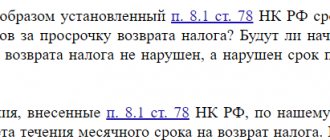According to sociological studies conducted annually in Russia, many citizens treat police officers with great distrust. There are undoubtedly quite objective reasons for such an attitude. The consequence of citizens' distrust of law enforcement officers is the so-called legal nihilism, in the ideals of which not a single generation of Russians is brought up. Nevertheless. let's figure out where to complain about police officers?
Today, the majority of our compatriots do not want to write a statement to the police if they have become the victim of a crime of minor severity that did not entail significant damage. This situation gives rise to a large percentage of latent crime. As a result, criminals feel impunity and continue their illegal activities.
Even fewer people try to protect their rights if they have become a victim of police brutality or inaction of police officers. However, Russian legislation has in its arsenal quite effective measures directed against violators in uniform, therefore, in order to be able to protect their legitimate interests if necessary, every citizen must know a clear algorithm of actions in such a situation.
For what reasons can I complain?
There can be many reasons, but the most common are the following:
- A police officer (precinct) acts unlawfully, violates the law, acts not in accordance with the regulations, exerts pressure;
- Law enforcement officers did not come when called,
- The employees accepted the statement that a crime had been committed, but were in no hurry to carry out verification activities;
- If a check on the application was carried out, but rather superficially and formally, and based on its results, the initiation of a criminal or administrative case was refused;
- If the police fail to act in other situations;
- If, after the initiation of a criminal case, police officers do not carry out the necessary investigative measures and rush to quickly close it and put it in the archives;
- Employees of internal authorities behave defiantly and not in accordance with the regulations.
In the above situations, it is highly undesirable to delay writing an appeal to the supervisory authorities, therefore measures must be taken without delay.
Main reasons for filing a complaint
Citizens can complain about the actions of employees of the Ministry of Internal Affairs of the Russian Federation in the following cases:
- police actions violate the law;
- police officers do not fulfill their duties provided for by current legislation.
Complaint about inaction of police officers
The inaction of the police may become a reason for a complaint in the following cases:
- police officers refused to accept a statement about a crime or other illegal acts;
- there was no response to the appeal and no verification is being carried out;
- no criminal case was initiated , and the inspection was carried out negligently;
- the act is incorrectly classified;
- investigative actions necessary to resolve the issue are not carried out;
- Ignoring by the district police officers and citizens' complaints.
The complaint must be submitted within the time limits established by law, otherwise it will not be considered.
Complaint about unlawful actions of police officers
In addition to inaction, police officers may also commit illegal actions. The most common violations that occur are:
- exceeding the time limit for detention;
- unlawful use of physical force or special means;
- interviewing a minor without a teacher or legal representative, etc.
Bodies to which you can file a complaint against police officers
According to current Russian legislation, in the event of unlawful behavior, actions, or inactions of police officers, you can submit an appeal to the competent authorities.
Prosecutor's Office of the Russian Federation
The Prosecutor's Office of the Russian Federation - this state body is called upon to oversee compliance with the law, including compliance with the law in the activities of law enforcement agencies. Any prosecutorial check against employees of internal affairs bodies, in accordance with the law, within the established time frame. If, as a result of this inspection, the prosecutor reveals violations in the activities of the police, he can issue an order to eliminate them, and can also draw up a presentation addressed to the head of the police department, in which he indicates the need to bring the perpetrators to justice. The applicant is notified in writing of the results of the inspection.
Judicial authorities
Courts of the Russian Federation - according to the Constitution of the Russian Federation, every citizen has the right to defend their legitimate interests in court, including if they were violated by government bodies or their officials. In court, the inactions or actions of police officers can be declared illegal. The corresponding application is submitted in accordance with the procedural procedure provided for by the Code of Administrative Proceedings.
Senior management
The head of the police department - he is the immediate supervisor, therefore he has the right to punish his subordinates in some cases. For example, you can write a complaint to him if the police officers subordinate to him allowed themselves to treat you incorrectly or rudely, and also used profanity when communicating with you. Based on the results of an internal audit, police officers who commit such offenses may be subject to disciplinary action.
Department of Internal Security
Department of Internal Security - you should write a complaint to this structural unit of the police if a police officer has committed a criminal act. Typically, this body receives complaints about corrupt police officers, concealment of evidence, or violent actions against suspects. Based on these facts, verification measures must be carried out, based on the results of which a decision may be made on the need to initiate criminal proceedings against the perpetrators.
Institutions of appeal
The easiest way for a citizen whose rights have been violated is to file a complaint by calling 112 (the all-Russian number for calling the police) or by calling a hotline established in each constituent entity of the Russian Federation.
Management of the Department of Internal Affairs structure
The next authority is the police leadership. You can submit a complaint here:
- to the immediate superior of the employee who committed the violation . For example, you need to complain about the actions of a local police officer to the head of the relevant department or the head of the police department (OVD) in which the corresponding department is located;
- superior officer;
- directly to the head of the Ministry of Internal Affairs system . In this case, as a rule, the complaint will be taken down for investigation and transferred to the police leadership of a particular constituent entity of the Russian Federation, however, it will be accepted and registered, and the applicant will be informed about the measures taken regarding it.
Public Council of the Ministry of Internal Affairs of Russia
In some cases, it makes sense to complain to the public council. This organization, which exists under the Ministry of Internal Affairs of the Russian Federation, monitors the actions of police officers and has the right to intervene in cases where violations of the law are involved.
To the prosecutor's office and court
If there are signs of violation of the law by the police, it makes sense to contact the prosecutor's office.
According to Chapter 3 of the Federal Law “On the Prosecutor's Office of the Russian Federation” No. 2202-1 of 1992, the powers of prosecutors include supervision of the actions of law enforcement agencies, primarily the police.
In addition, the actions of police officers, like any other officials, can be appealed administratively through the court. In this case, the applicant must be guided by the rules established by the CAS of the Russian Federation.
Distinctive features of a complaint against police officers
A complaint against police officers has the following characteristic features:
- It can be written by any person who believes that police officers have violated his rights and legitimate interests.
- An application or appeal to the court can be written handwritten or typewritten. To go to court, you must comply with the procedural order. You can't do without lawyers and attorneys.
- The application must necessarily indicate the passport details of the applicant, as well as the details of the authority where it is being submitted.
- The appeal shall indicate all relevant facts. They must be stated clearly and concisely.
In general, the law does not define a clear form for writing a complaint against police officers, so it is drawn up in free form, but with mandatory compliance with the above rules. Let me remind you that when going to court, you must follow the procedural order.
Reasons
In order for a complaint to be accepted and properly considered, it must present a sufficiently compelling basis. This may be any unlawful action or the manifestation of an unreasonable blatant inaction.
Below are the most common reasons why citizens file complaints against law enforcement officials:
- If a police officer addresses a civilian outside the regulations. According to the rules, a police officer must address a citizen as “You,” giving his full name and also providing his identification;
- If, when communicating with a citizen, a law enforcement officer uses abusive language, swears, uses offensive language, or raises his voice;
- If a law enforcement officer abuses his official powers, for example: asks to show a citizen’s documents without good reason;
- If a police officer conducts an inspection or search without receiving official permission for these actions;
- If a law enforcement officer unreasonably uses physical force against a civilian;
- If a police officer attempts extortion and demands a bribe;
- If a law enforcement officer makes an unauthorized arrest of a civilian;
- If a law enforcement officer shows blatant inaction in response to a citizen's request to take some action that is within his jurisdiction.
In the situations presented above, you should complain to higher authorities. Read about where exactly you can complain and how to properly file a complaint against a police officer in the following sections.
How to file a complaint against police officers and how it is considered
After you have written a complaint (an administrative claim to the court), you can send it to the appropriate authority in two traditional ways: in person or by mail . In addition, nowadays it is possible to file a complaint by e-mail (this option is not always provided for in court). In particular, if you visit the official website of any prosecutor’s office in your city, then pay attention to the fact that there is a so-called online reception. This electronic service was created specifically for filing various complaints. If you decide to use this service, be sure to provide an email address to which information about the measures taken in response to your request can be sent to you.
If you wish to file a complaint in person, this is usually done through the office of a particular authority. So, in the office of the prosecutor's office, when registering your complaint, a copy of it, which will be given to you, is marked with the date of its acceptance and the official who will deal with your case. You can check with him about his progress by phone or by making an appointment.
Based on the results of the inspection, an appropriate decision must be made, of which the author of the complaint must be notified. Such notice is usually sent in an envelope by mail or by email. In addition, you can indicate in the appeal that you want to pick up the answer to it personally. Then it can be obtained from the office of the relevant authority against signature. If the applicant is dissatisfied with the decision taken on the complaint, he has every right to appeal it to a higher authority or to court. Let me remind you once again that when going to court, it is necessary to comply with the procedural order.
Procedure for filing and consideration of a complaint
Main ways to file a complaint:
- online via the Internet (via the official website),
- personally through the reception,
- by mail with registered notification.
The complaint must be submitted in writing and must contain:
- an indication of who the complaint is being submitted to (name of government body),
- applicant details (full name, address, telephone number),
- date, time and place of the events, information known to the applicant about the police officers who violated the rights and interests (full name, position, rank, etc.),
- the essence of the conflict, a description of the situation that served as the basis for filing a complaint, your request,
- date and signature.
Article for exceeding official powers by police officers
Violation of job description by a police officer is included in the group of crimes against the authorities and interests of the civil service. Chapter 30 of the Criminal Code of the Russian Federation is dedicated to them.
Responsibility for exceeding official powers by police officers is established by Article 286 of the Criminal Code of the Russian Federation. It is understood as the performance of actions that go beyond the scope of duties. A prerequisite for qualifying an act under this norm is a significant violation of the rights of citizens, legal entities or the interests of the state.
The punishment for exceeding the official powers of a police officer depends on the presence of aggravating factors. These include:
- use of violence or threats;
- use of weapons or special means;
- grave consequences of the act.
The article for exceeding official powers by police officers implies active actions by employees of the Ministry of Internal Affairs that go beyond the limits of their competence. At the same time, violators must understand that their actions are illegal.
Exceeding official powers by an employee of the Ministry of Internal Affairs can be expressed in the commission of actions that:
- relate to the powers of another official (superior or equal in status);
- can be used only in exceptional cases (for example, weapons can only be used if the criminal poses a real danger to others);
- committed on their own initiative without the approval of management;
- cannot be committed under any circumstances.
Note!
To qualify the abuse of official powers by a police officer under the article of the Criminal Code of the Russian Federation, the motive of the perpetrator does not matter.
The law understands the use of weapons as their intended use. For example, this does not include a situation in which a police officer pulled out a gun but did not fire it.
The court distinguishes between abuse of power when using weapons and lawful actions, guided by the Federal Laws “On the Police”, “On the Internal Troops of the Ministry of Internal Affairs of the Russian Federation”, “On State Security”, etc.
Special means include:
- rubber batons;
- handcuffs;
- gas canisters;
- water cannons;
- vehicles;
- service dogs.
They should be in service with the Ministry of Internal Affairs.
Grave consequences for exceeding official powers by a police officer mean:
- causing death;
- suicide or attempted suicide;
- causing serious damage;
- shutdown of the enterprise;
- long-term suspension of the production process;
- major accidents.
Courts considering such cases find out what motivated the police officer who violated the law, what documents established the powers of the law enforcement officer, and what specific points of the instructions he violated.
Next, we will consider what a police officer faces for exceeding his official powers.
Legislation
The detained citizen is obliged to proceed from the standards laid down by the laws of the Russian Federation. And these allow people’s freedom to be limited for some time only in certain cases. Thus, Article 91 lists the following:
- suspicion of committing a criminal act, which is confirmed by: performing illegal actions in the presence of the police (caught on the spot);
- testimony of witnesses;
- the presence of traces of a criminal act on the body or clothing;
Article 14 of Law No. 3-FZ supplements the list with special situations. Thus, the following persons may be detained on legal grounds:
- evading: execution of punishment;
- investigative activities;
- prisons;
People who violate current legislation may have their freedom restricted for several hours. For example, drinking alcohol in public places.
Limitation on periods of detention
The police operate strictly within the established rules. And they are:
- three hours after the restriction of freedom of movement, the detainee must be presented with a protocol with the reason for such actions;
- It is allowed to detain a citizen without a court verdict for no more than 48 hours;
- If the court decides that the grounds are significant, then the period is extended by:
- 72 hours;
- 120 hours if necessary to collect evidence.
Procedural points
The law obliges law enforcement officers to document their actions. The procedure includes the following points:
- informing the suspect of the position, surname, name and patronymic of the police officer;
- confirmation of rights with a document at the request of the suspect;
- notification of the legal reason for the retention;
- preparation of the protocol;
- familiarization of the person with the document for signature;
- informing the prosecutor's office about the actions taken (after 12 hours of the suspect being in the station);
- organizing a meeting between a citizen and a defense attorney (the meeting lasts no more than 2 hours).
What responsibility does a police officer bear when exceeding his authority?
Malfeasance by police officers is considered a serious offense. They can get you a real prison sentence.
The following penalties are provided for abuse of official powers by a police officer:
- fine up to 80 thousand rubles;
- removal from office or ban on working in government agencies for up to 5 years;
- forced labor for up to 4 years;
- arrest for up to six months;
- imprisonment for up to 4 years.
What does a police officer face for exceeding his official powers if there are aggravating factors? If a law enforcement officer used violence, threatened the victim, used a weapon, or caused serious harm to the victims, he could receive a prison sentence of 3 to 10 years. Additionally, the court deprives the perpetrators of the right to work in the police for 3 years or less.
Where to complain about law enforcement officials
A complaint against an employee of the Ministry of Internal Affairs can be sent to one of several government departments. The choice of recipient depends on the degree of violation. Let's take a closer look at where a citizen can turn to restore justice.
Complaint addressed to the head of the police department
If an employee of the Ministry of Internal Affairs communicated rudely or rudely with a citizen, then the head of the department should complain about such behavior. This is the easiest and fastest way to solve the problem. Upon receiving a complaint, the manager is obliged to initiate an internal audit. If she confirms unlawful actions on the part of the police officer, disciplinary measures will be imposed on him.
Managers are often aware of the work characteristics of their employees. If a superior comes to the defense of a subordinate, the applicant should contact higher authorities.
Request to the prosecutor's office
If a complaint to the head of the department does not give the desired results, the citizen can contact the prosecutor's office. This should also be addressed in situations where serious violations were noticed in the work of the police.
When studying a citizen's complaint, the prosecutor has the right to demand the provision of any documentation and materials of the criminal case in order to verify the legality of the actions of law enforcement officers. If violations are revealed during the inspection, the offender will be subject to disciplinary action.
If there are illegal actions on the part of the police, an employee of the prosecutor's office writes a statement addressed to the head of the police department. If a citizen was illegally refused to initiate a criminal case, all materials are subject to additional verification. The applicant is notified in writing about the results of its conduct.
Have a question for a lawyer? Ask now, call and get a free consultation from leading lawyers in your city. We will answer your questions quickly and try to help with your specific case.
Telephone in Moscow and the Moscow region: +7
Phone in St. Petersburg and Leningrad region: +7
Free hotline throughout Russia: 8 (800) 301-39-20
Call the Ministry of Internal Affairs hotline
In this case, the citizen does not even have to leave home to file a complaint. To complain about the actions of a police officer, you must call 8-800-250-85-02. The “hotline” was specially created so that citizens could submit a request and receive emergency assistance. By calling the above number, the victim can report violations by law enforcement officers. Calls are accepted 24 hours a day.
Filing a complaint to the CSS or GUSB
The Department of Internal Security monitors the work of law enforcement agencies. Therefore, you should contact here if previous complaints have not yielded results. CSS employees examine issues of bribes in the police and other unlawful actions carried out by police officers.
The Department of Internal Security leaves complaints from some citizens without consideration. This may happen due to the workload of employees or if the reason for the request is considered disrespectful. For example, the CSS rarely considers applications related to minor sins of law enforcement officers (we are talking about rudeness, rudeness).
To ensure that the application is processed, a citizen can do the following:
- duplicate the complaint;
- send one copy to the prosecutor’s office, and the second to the CSS;
- CSS employees should be notified that a copy of the complaint has been sent to the prosecutor's office:
- Hire a lawyer to protect your interests.
With this approach, the request will be considered.
Appeal to the Public Chamber
This body checks the quality of work of all government bodies. Upon receiving a complaint against a police officer, employees of the Public Chamber initiate an investigation. If a violation is detected, those responsible will be punished. In addition, the applicant’s case will be reviewed taking into account all the nuances.
Going to court
Initiating legal proceedings is a last resort. You should go to court only if other methods of resolving the issue have not produced the expected results. You can file a claim in a city or district court of general jurisdiction.
Going to court involves the following steps:
- Filing a claim. The statement of claim is written according to the rules of procedural law.
- Filing a claim in court along with documents.
- Participation in hearings.
- Obtaining a court decision.
If the court finds the actions of an official illegal or establishes the fact of inaction, the violator will be obliged to eliminate the violations committed.











